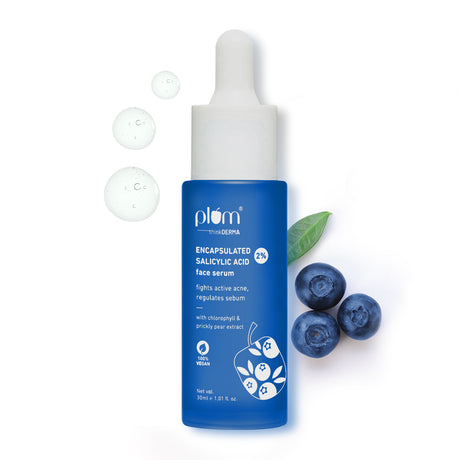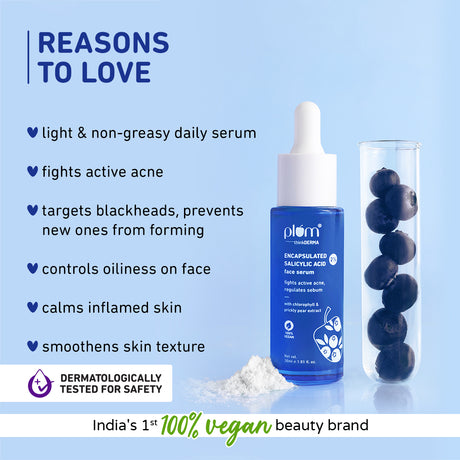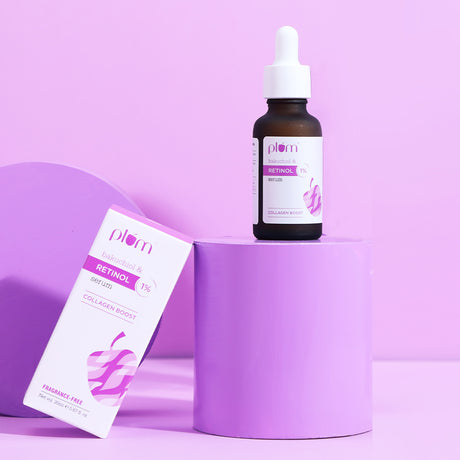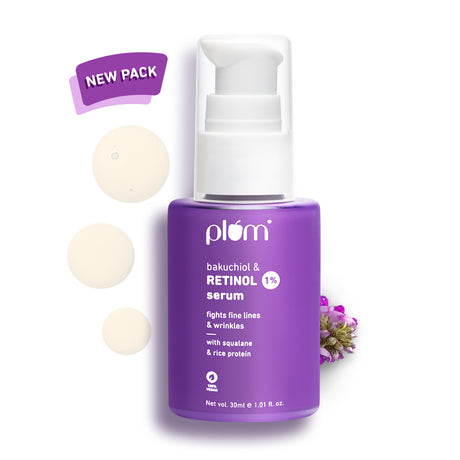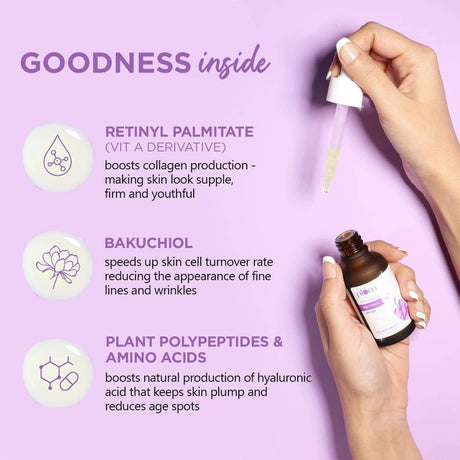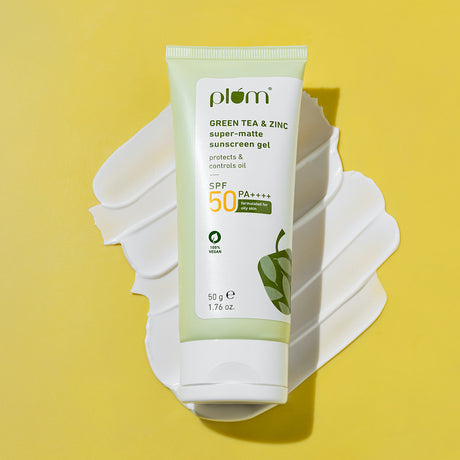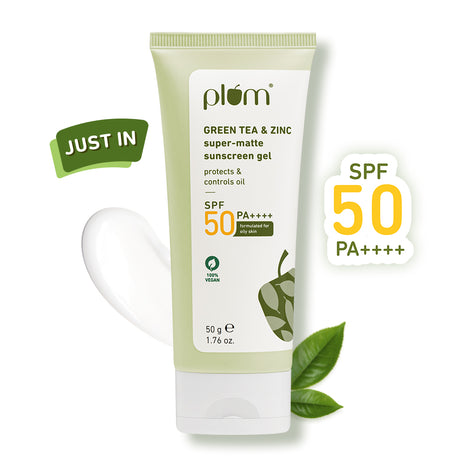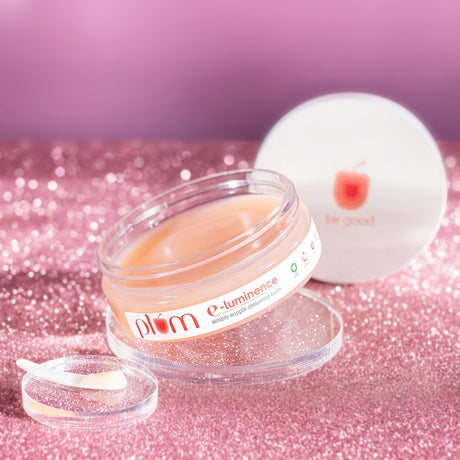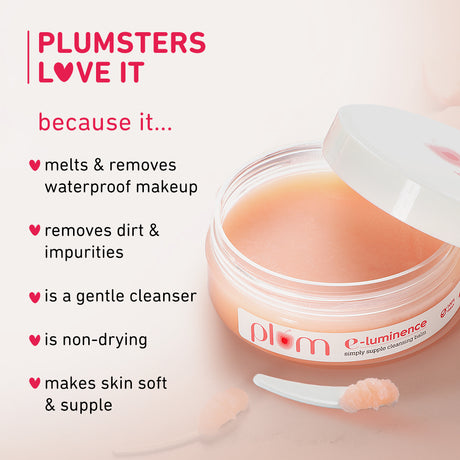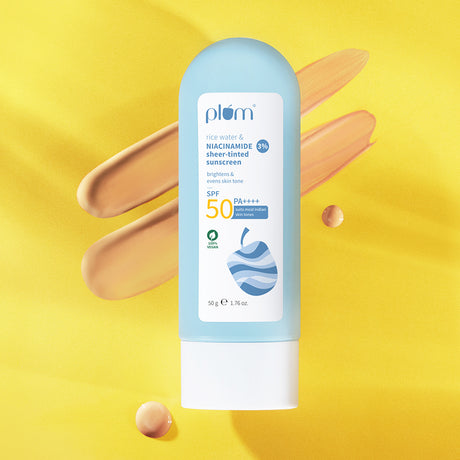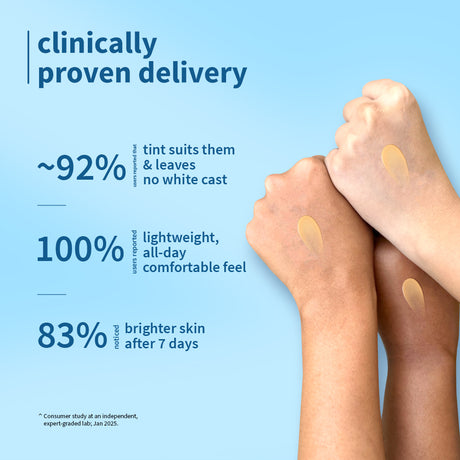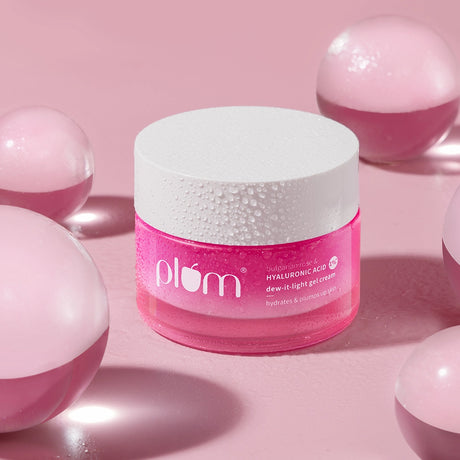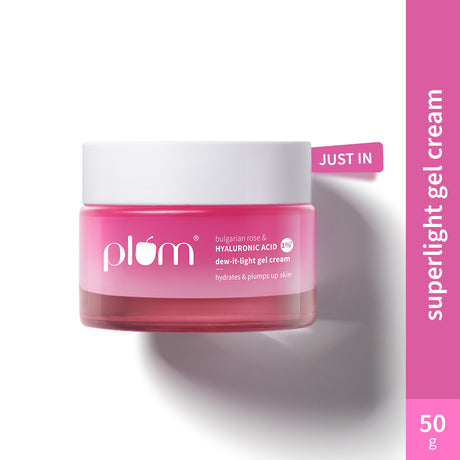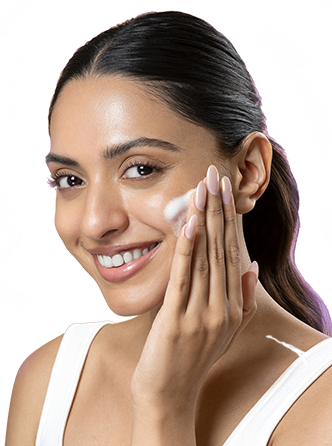
IN THIS ARTICLE
Very few things are as frustrating as those tiny, stubborn black spots appearing on your nose, chin, or cheeks. Called blackheads, though harmless, are a common skincare concern that anyone can struggle with.
However, managing blackheads is not too difficult a task. All you need are the right ingredients and a consistent skincare routine.
So, if you’ve tried everything from pore strips to scrubs and still can’t find the answer to “ how to remove blackheads, we might be able to help.
Here is a simple guide that explains the science behind blackheads, their causes, and tips and tricks for effectively removing them.
Read on.
What are blackheads?
Blackheads can be called the first signs of an impending breakout. It’s a type of mild acne that forms when pores become clogged with oil, dead skin cells, and debris.
However, when these clogged pores come in contact with air, it causes oxidation, turning them dark and giving blackheads their signature appearance.
What causes blackheads?
Here are some factors that can contribute to blackhead formation:
-
Excess Oil Production: Hormonal changes during puberty, menstruation, or pregnancy often lead to overactive oil glands. This excess sebum production can cause clogged pores and blackheads if not cleansed properly. Blackheads on the chin can be a sign of hormonal issues that can be cured with medical help.
-
Improper Cleansing: Not removing makeup or sunscreen thoroughly can clog pores.
-
Environmental Factors: Pollution, humidity, and sweat can cause clogged pores, exacerbating blackheads on the face, including the chin and nose.
-
Diet and Lifestyle: High-glycemic foods, dairy, and stress could cause changes in oil secretion and cause blackheads on the nose and other parts of the face.
How to manage blackheads
Whether your main motive is to get rid of blackheads on the nose, chin, or cheeks, you need to ensure that you do not harm your skin in the process. Therefore, always follow these essential guidelines to avoid damaging your skin while managing blackheads on the face:
-
Do not pick or squeeze: Do not touch your blackheads. Using your fingers to extract blackheads can lead to scarring or infection.
-
Start with clean skin: Always wash your face with a gentle cleanser before attempting any treatment.
-
Prep your pores: Use a warm towel or steam your face for a few minutes to open up your pores before removing blackheads.
How to remove blackheads
Having blackheads on the nose can be extremely annoying. Therefore, you need science-backed remedies to remove them effectively. Here are some ways to reduce blackheads on the nose, chin, and cheeks.
1. Adopt ingredients with salicylic acid
Salicylic acid is a beta-hydroxy acid (BHA) that penetrates deeply into pores to dissolve oil and debris. It keeps your pores clean, aiding in blackhead removal and prevention.
Opt for cleansers, toners, or serums containing 1-2% salicylic acid and use them regularly for visible results.
2. Opt for clay masks for a deep cleanse
Clay masks, especially those with bentonite or kaolin, work wonders for oily and acne-prone skin. These masks draw out impurities, absorb excess oil, and leave your pores feeling refreshed. A weekly application of these clay masks will help prevent clogged pores and thus blackheads on the face.
3. Use retinoids
Topical retinoids like adapalene or tretinoin can be a significant addition to your blackhead removal treatment. They accelerate cell turnover, preventing the buildup of oil and dead skin cells, responsible for clogged pores.
However, always patch test before use.
Moreover, while opting for retinoids, start with a lower concentration and gradually increase to avoid irritation.
1% Retinol Face Serum with Bakuchiol
4. Do gentle exfoliation
Regular exfoliation removes dead skin cells that contribute to clogged pores. Choose chemical exfoliants like AHAs (glycolic acid) or BHAs to deep cleanse your pores and prevent buildup on your skin.
A weekly exfoliation is ideal.
How to prevent blackheads
While there are many ways to tackle blackheads on the face, it’s crucial to adopt steps that prevent them from recurring. A consistent skincare routine can help.
1. Daily Cleansing
Use a gentle cleanser twice daily to remove dirt, oil, and makeup. Avoid harsh cleansers that strip your skin, as they can trigger increased oil production. You can opt for ingredients like niacinamide, green tea, and salicylic acid.
For the nighttime routine, opt for double cleansing to remove all product and makeup from your skin. Massage a cleansing oil or balm to emulsify the products.
You can use micellar water as well.
For the second step, follow with a gel/foam or cream-based cleanser and massage it for at least 60 seconds for a deep cleanse.
Follow up with a niacinamide toner.
Green Tea Pore Cleansing Face Wash
Niacinamide Face Toner with Rice Water
2. Treat
Whether you have stubborn blackheads or need faster results, serums can significantly help. Use a salicylic acid serum twice a day and follow up with a nourishing moisturizer.
3. Adequate hydration
Moisturization is the key. Period. Even oily skin needs hydration. Use a lightweight, non-greasy moisturizer to keep your skin hydrated. Stick to gel or water-based moisturizer to prevent any clogged pores.
Niacinamide & Rice Water Gel Cream
Bulgarian Rose and 1% Hyaluronic Acid Dew-it-light Gel Cream
4. Sunscreen is non-negotiable.
Irrespective of your skin type, weather, or location, applying sunscreen is non-negotiable. While sunscreens are infamous for being heavy, comedogenic, and thick, modern sunscreens are extremely lightweight. Opt for a broad-spectrum sunscreen with a minimum SPF of 30 and use it every day to protect your skin from UV damage.
5. Use non-comedogenic products
Since clogged pores are the reason blackheads occur in the first place, be sure to use non-comedogenic products. Using products that do not clog your pores will help keep blackheads at bay.
6. Monitor Your Diet
Your diet can play a crucial role in your skin health. Reduce processed food and include more fresh fruits and vegetables in your diet. Moreover, you can also benefit from reducing dairy or high-glycemic foods. Keep track of what works for you.
7. Remove makeup
To aid your skin’s renewal and regeneration process overnight, remove all makeup and product buildup from your skin before sleeping with the double cleansing method.
E-Luminence Simply Supple Cleansing Balm For Normal, Dry Skin
Additional tips to prevent blackheads.
-
Change pillowcases weekly to reduce the transfer of oil and bacteria.
-
Clean your phone screen regularly to prevent dirt from transferring to your face.
-
Cover your face while being exposed to excessive dust and dirt.
Blackheads can seem like an impossible issue to tackle, but they’re manageable with the right approach. With proven treatments like salicylic acid and retinoids and a suitable skincare routine, it’s not an uphill battle. All you need to do is stick to a routine that includes gentle cleansing, hydration, and targeted treatments.
But if blackheads persist despite your best efforts, don’t hesitate to consult a dermatologist for professional advice.
FAQs
Do blackheads go away naturally?
Blackheads may diminish over time if you maintain a proper skincare routine, but they often require targeted treatments to remove effectively.
Why do blackheads keep coming back?
Blackheads can recur if you don’t address the underlying causes, such as excess oil production or improper cleansing. Consistent care is key.
Are blackheads hard to remove?
While blackheads can be stubborn, methods like salicylic acid, retinoids, and professional extractions can make a significant difference.
What’s the difference between blackheads on the nose and chin?
Blackheads on the nose are often more visible due to larger pores, while those on the chin may be linked to hormonal fluctuations.





